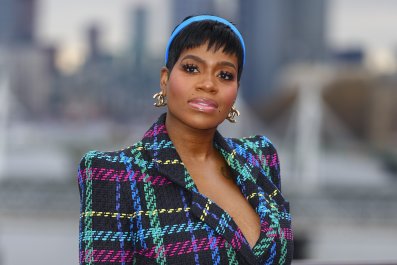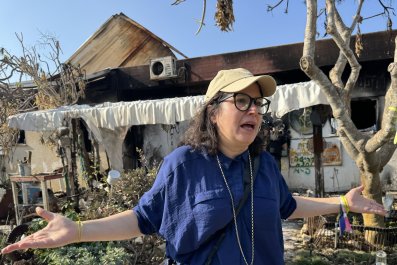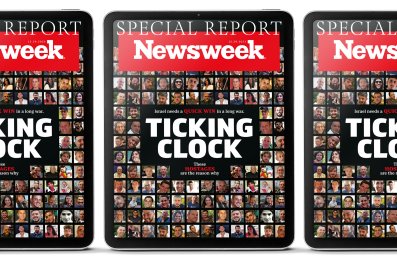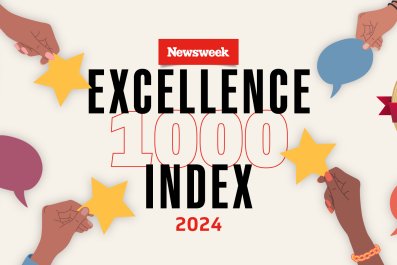When my husband and I married in September 2020, the biggest obstacle in our minds was COVID. We never anticipated that an entirely different virus was about to have such a profound impact on our lives.
We bought a house together and one year after we were married, I was nine weeks pregnant and attending a prenatal visit.
During what I thought would be my first ultrasound appointment, one of the doctors pulled me aside and gave me the news that shook my world: I had tested positive for HIV.
When they brought my husband in and shared the news with him, he took my hand and assured me that we were in this together.
All I could think at the time was that I was going to die, and possibly my baby, too.

Fortunately, the news from the doctors was not as grim as my initial fears led me to believe. They said that my viral load—the amount of HIV in my blood—was low, meaning it could be well managed with the use of antiretroviral drugs.
These medications would not only keep me healthy but also prevent HIV from transmitting to my unborn baby.
I started on the medications three weeks after I was diagnosed. Only three weeks after that—a mere six weeks after receiving my diagnosis—the doctors tested my blood again.
I was thrilled to hear my viral load was undetectable, meaning I was very unlikely to pass HIV on to my husband or child.
The advancement of treatment gave me hope, but the next step was overcoming the stereotypes associated with my HIV status.
Since the 1980s and 1990s, there has been a misperception that HIV is mainly acquired by people who are sex workers or men who have sex with men. But I am neither of those.
When it came down to it, talking through it with my healthcare team, we realized when I was likely to have acquired HIV, and from whom. He was a previous boyfriend, someone with whom I had unprotected sex.
We were in a typical heterosexual relationship and I was relying on oral contraceptives to protect against pregnancy—HIV was never a consideration.
So there it was—I was a straight woman with healthy relationships who acquired HIV from a romantic partner.
I had nothing to feel guilty about. But I was also fearful that I could have passed it on to my husband—in fact, we secluded ourselves at home the week after I was diagnosed, waiting for his blood test results to come back.
We hid from the world, and were so relieved when we found out that he was HIV-negative.
After that, I had to break the news to my parents, and that was a challenge too, because I knew their familiarity with HIV was probably based on the doom-mongering ads and campaigns in the 1980s that painted a grim picture of the virus.
So we approached it as scientifically as possible, acknowledging the risks but also recognizing that thanks to new treatments, I could not only remain healthy myself, but I could also avoid passing the virus on to my husband and my baby.
Honestly, it was a tough road overcoming the stigma and fear and shame. But armed with newly acquired hope, and understanding that my diagnosis was not a death sentence and I could lead a normal, full life, I was determined not to let HIV define me.
If I could lead a full life with HIV, then why should I not look at it like any other condition that people have, like asthma or diabetes? Why should everyone not look at HIV that way?
I would take my medication just like people do with those other conditions, and that would keep me healthy. And thanks to those same medications, my HIV status would also not pose a serious risk to my husband or anyone else.
In reality, HIV can affect anyone. As a wife and mother, I break the mold and defy the cultural assumptions of HIV, so I have made it my mission to help other people out there recognize that they are not alone.
This desire to achieve change led me to partner with ViiV Healthcare on their HIV-in-View anti-stigma campaign, which aims to challenge outdated perceptions of HIV by sharing the authentic faces and stories of the HIV community.
I am proud to show that I am happy, and healthy and am living a fulfilled life with HIV.
As one of five partners in this campaign, we have been able to share our stories and help educate, inform, and clear the negativity surrounding the condition.
Nobody is exempt from HIV and the fact that all five of us come from all over the world and have such different backgrounds, really helps portray a true and diverse picture of living with HIV today.
I've also shared my personal experiences on TikTok and was overwhelmed by the response from followers.
Questions about overcoming the stigma of HIV and my role as a married person and mother have come up again and again, and I have been proud to share my story to help normalize the HIV discussion.
I wanted to let other women living with HIV and expectant mothers out there know that they are not alone in their experience, and that it is possible to give birth to a healthy, HIV-negative child, and live a normal life.
Just as importantly, I work every day to overcome the stigma associated with my HIV status, and to educate on the prevention and treatment options available to help people living with HIV and their partners to continue living their best lives.
My son is HIV-negative, and so is my husband. Together, we thrive.
Victoria Roscow has been living with HIV for two and a half years. She wants to share her story in the hopes of breaking the stigma around HIV.
All views expressed in this article are the author's own.
Do you have a unique experience or personal story to share? Email the My Turn team at myturn@newsweek.com.







